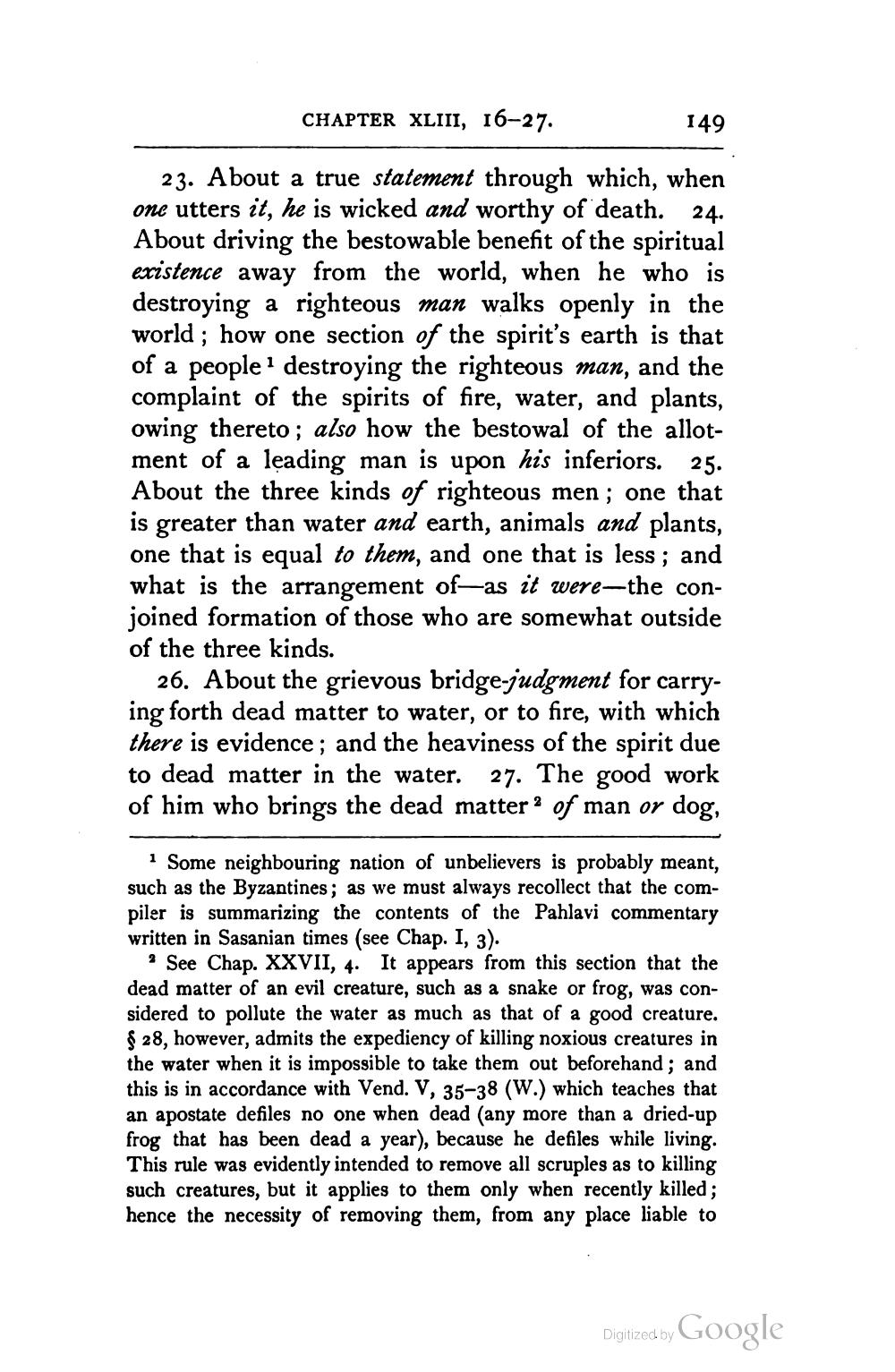________________
CHAPTER XLIII, 16-27.
149
23. About a true statement through which, when one utters it, he is wicked and worthy of death. 24. About driving the bestowable benefit of the spiritual existence away from the world, when he who is destroying a righteous man walks openly in the world; how one section of the spirit's earth is that of a people1 destroying the righteous man, and the complaint of the spirits of fire, water, and plants, owing thereto; also how the bestowal of the allotment of a leading man is upon his inferiors. 25. About the three kinds of righteous men; one that is greater than water and earth, animals and plants, one that is equal to them, and one that is less; and what is the arrangement of—as it were-the conjoined formation of those who are somewhat outside of the three kinds.
26. About the grievous bridge-judgment for carrying forth dead matter to water, or to fire, with which there is evidence; and the heaviness of the spirit due to dead matter in the water. 27. The good work of him who brings the dead matter of man or dog,
1 Some neighbouring nation of unbelievers is probably meant, such as the Byzantines; as we must always recollect that the compiler is summarizing the contents of the Pahlavi commentary written in Sasanian times (see Chap. I, 3).
2 See Chap. XXVII, 4. It appears from this section that the dead matter of an evil creature, such as a snake or frog, was considered to pollute the water as much as that of a good creature. § 28, however, admits the expediency of killing noxious creatures in the water when it is impossible to take them out beforehand; and this is in accordance with Vend. V, 35-38 (W.) which teaches that an apostate defiles no one when dead (any more than a dried-up frog that has been dead a year), because he defiles while living. This rule was evidently intended to remove all scruples as to killing such creatures, but it applies to them only when recently killed; hence the necessity of removing them, from any place liable to
Digitized by
Google




